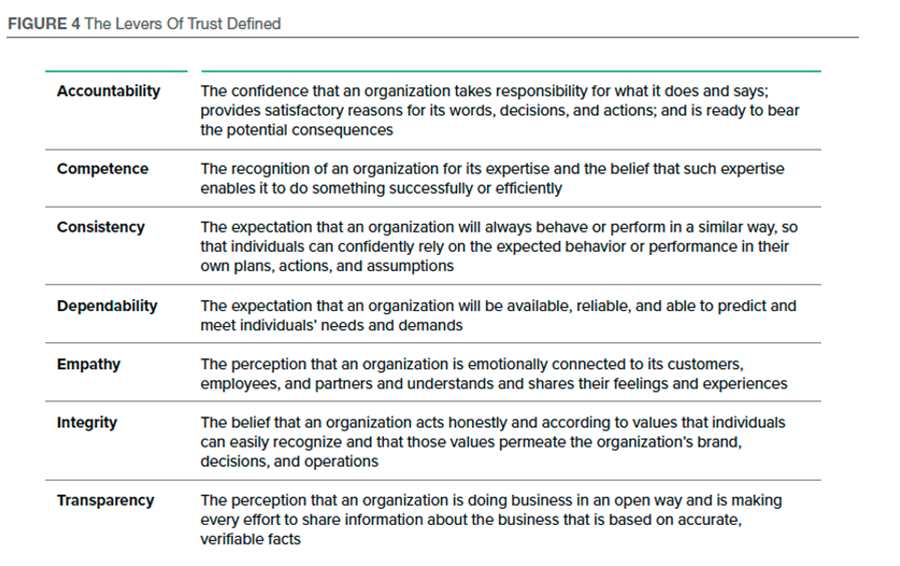Consumers are beginning to hold the organisations they do business with and work for to new standards of integrity, dependability, and social responsibility, Forrester’s latest 2021 global Trust Imperative report found.
These findings reveal new patterns of trust that business leaders must detect and understand, which Forrester defines as “confidence in the high probability that a person or organisation will spark a specific positive outcome in a relationship.”
The report also found that culture, region, and other societal factors play an important role in how willing an individual is to trust initially and the degree and extent of the trust.
Forrester said leaders should realise that:
- A combination of perception and experience determines trust attitudes.
Perception shapes trust: 13% of US, 17% of French, and 27% of Singaporean online adults tried a new brand because they believe in the values that the brand stands for. However, experience causes individuals to refine their perceptions and alters trust.
If they observed a company saying or doing something that appears to contradict the values the company stands for, 18% of US, 26% of French, and 23% of Singaporean online adults say they would stop doing business with that company permanently.
- Local culture influences the willingness to trust and trust levels.
Different countries display varied appetites for risk: 46% of Singaporean online adults enjoy taking risks in the hope of better results versus 32% in the UK. How individuals trust also depends on a region’s cultural legacy, its history, and its political and socioeconomic environment.
For example, data on COVID-19 vaccine sentiments shows that French citizens are the most skeptical in the world. Health experts say that French trust in inoculations began to decline in the 1980s and was further demolished by a series of public health scandals, such as the swine flu fiasco in 2009.
- Emerging technology heightens the need for trusted relationships.
Forrester’s research shows that trust in technology, the companies developing it, and those deploying it is essential for future fit transformation. Emerging technology is fuelling new consumer-facing interactions, but consumers’ willingness to engage with it also depends on how much they trust the brand wielding it. Individual consumers’ willingness to engage with emerging tech varies

Trust can be defined across seven different levers
“Trust is not an abstract concept — there are known levers that can build and strengthen trust with stakeholders,”
“Companies that earn trust among customers, employees, and partners drive revenue-generating loyalty behaviours like retention and advocacy. Highly trusted firms also have greater growth potential, as their customers are more likely to experiment with new offerings, their employees are more likely to be productive, and their partners are more likely to facilitate faster routes to market, “said Sharyn Leaver, senior vice-president of research at Forrester.
“Forrester’s Trust Assessment and Scorecard will help brands cultivate their trust capital so that trust becomes an actionable strategy rather than an inspirational goal.”
Forrester’s March 2021 Global Trust Imperative Survey was fielded globally to 1,851 online respondents in March. Of that number, 17% of total respondents were from Singapore and 34% from APAC.









